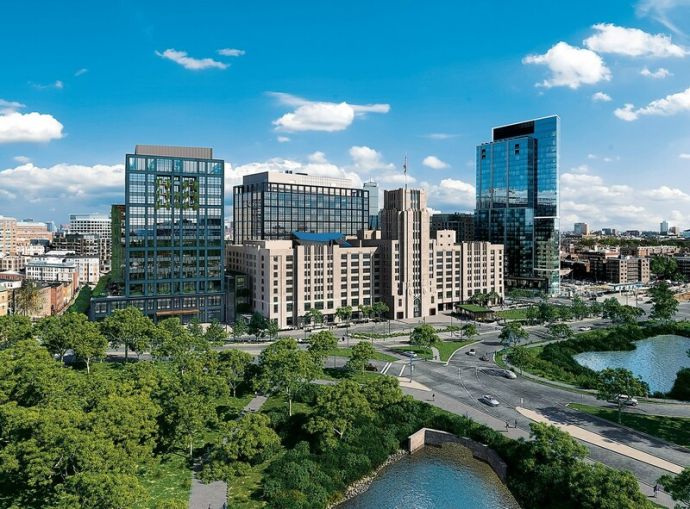Beantropolis
New member
- Joined
- Jun 6, 2021
- Messages
- 65
- Reaction score
- 136
Stefal, I was not criticizing the size of the buildings' floor plates (which are another issue), but the scale at which their facades are arranged. I'm talking about the seemingly reflexive tendency for architects to lamely try to disguise a building as one half (or a third, or a quarter -- or all at the same time like this one) its size by blowing up the scale of the building's exterior elements. This phenomena can be observed not only on this building, 201 Brookline Ave., but also on nearly every new large development that has gone up in the city in recent years. My currently most loathed example is Parcel 12, for its sheer prominence.
Amazingly to me, no one seems to notice or be bothered by this. Also, I always thought this was a strictly Bostonian development, but I'm now noticing it in new developments in cities all over the U.S., and the U.K. But, it does seem far more prevalent here, unfortunately. There does seem to be a growing awareness of this design tactic, however, a variation of which I've recently seen referred to as the Las Vegas Window Trick. Hopefully this increases the likelihood that people will demand an end to this awful design trend.
Amazingly to me, no one seems to notice or be bothered by this. Also, I always thought this was a strictly Bostonian development, but I'm now noticing it in new developments in cities all over the U.S., and the U.K. But, it does seem far more prevalent here, unfortunately. There does seem to be a growing awareness of this design tactic, however, a variation of which I've recently seen referred to as the Las Vegas Window Trick. Hopefully this increases the likelihood that people will demand an end to this awful design trend.
Last edited:




